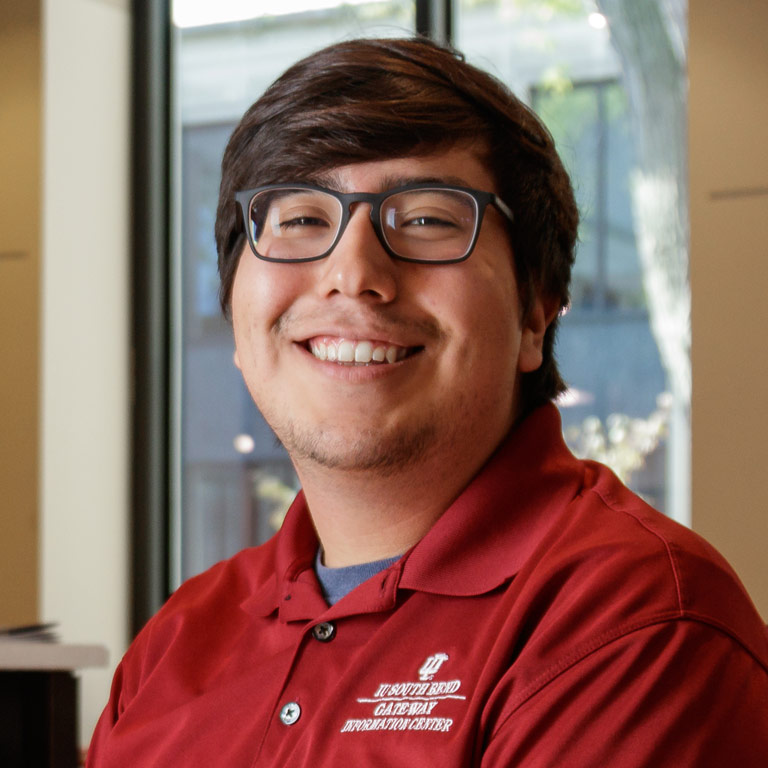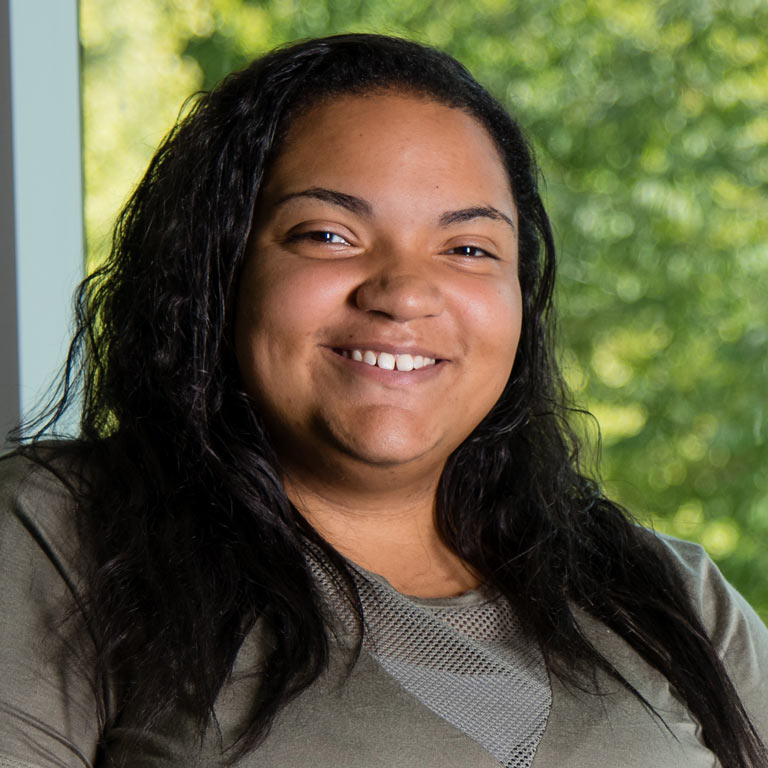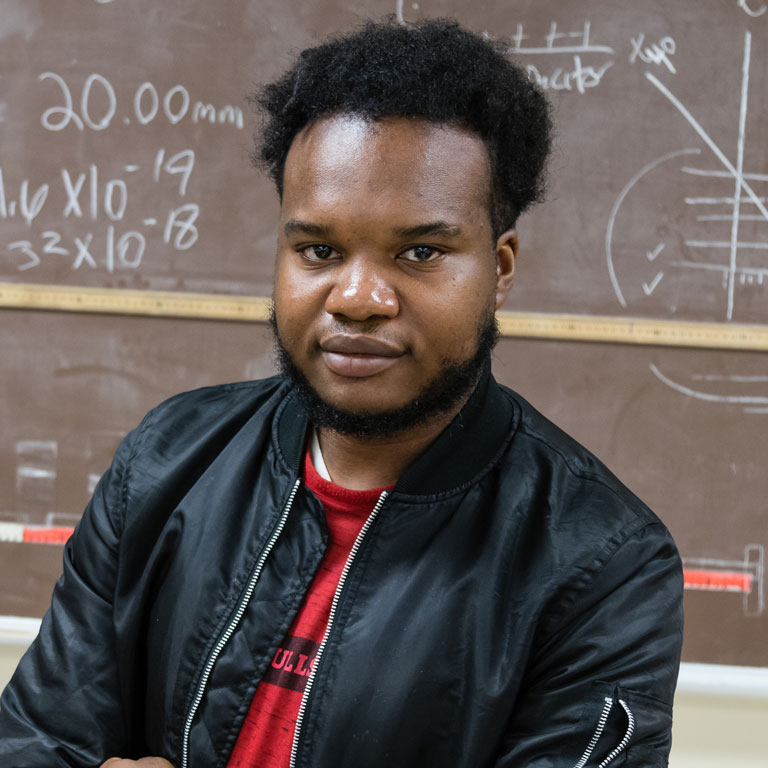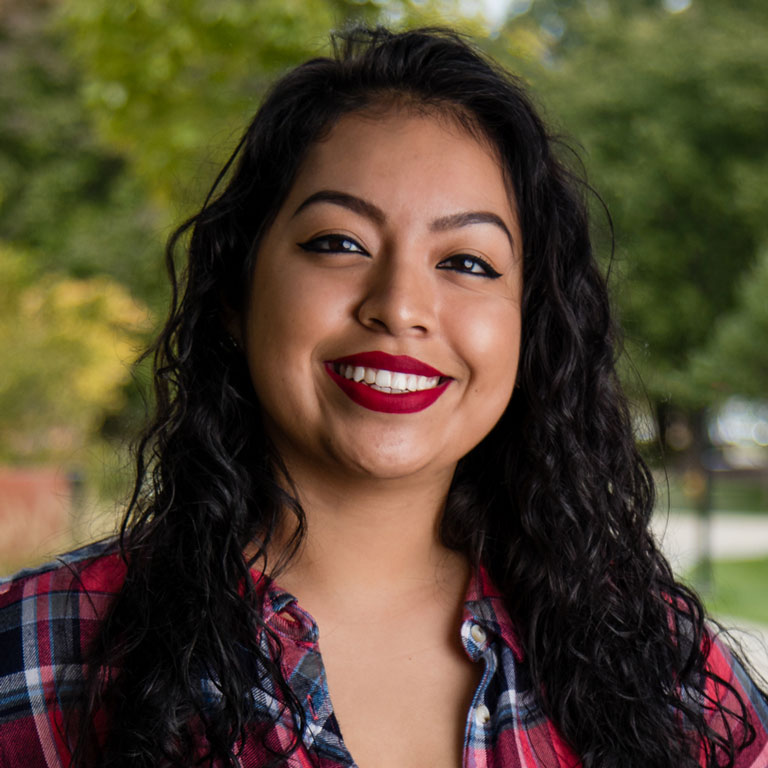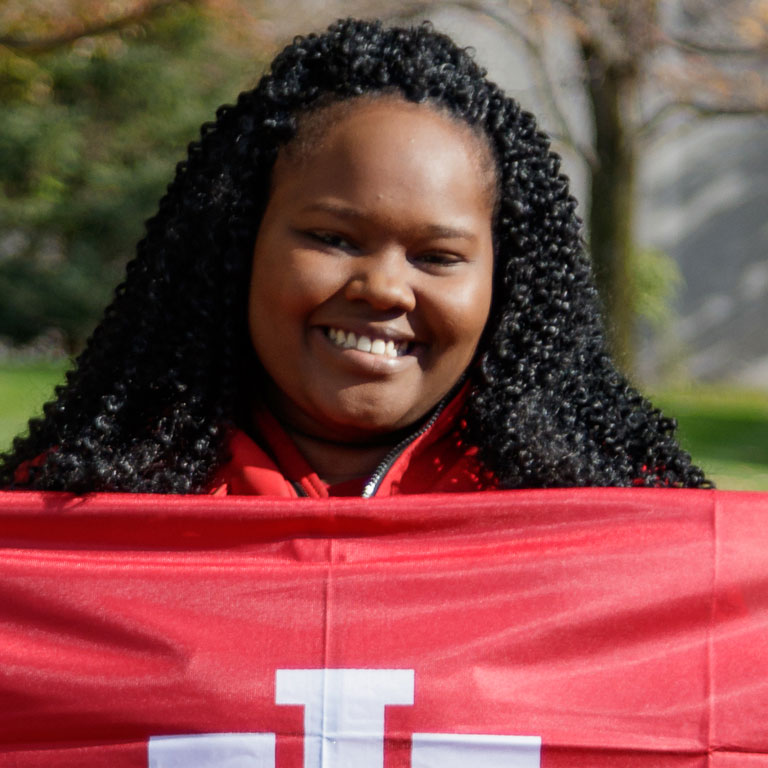For first-generation students, college readiness can be an issue. Their high school curriculum may not have prepared them for the rigors of college coursework. The key is to fill in the learning gaps, so they can realize their full academic potential. IU South Bend’s Summer Bridge program helps incoming students with below college-level course readiness gain college-level proficiency over the summer. “It’s not unusual to have first-generation students who want to study science arrive without all the backgrounds,” explained Physics Professor Jerry Hinnefeld. “One of the most rewarding parts of my job as faculty at a regional campus is serving a lot of first-generation students and introducing them to the possibilities that are out there for them.”
As first-timers in their family blazing new trails in education, many of these students are also paying for their own education because the family’s income cannot absorb the added expense of college tuition. Feeling a sense of responsibility to their families, first-generation students are reluctant to take money away from the family budget and cause financial hardships for their younger siblings and parents. “Some cultures also have strong prohibitions against borrowing money,” explained Murphy. “So, many first-generation students struggle to manage work and the demands of their college coursework.”
In addition to financial pressures, many first-generation students wrestle with the perception that do not belong in college. To fit in and draw less attention to themselves, they do not often seek help. “They internalize their confusion about college bureaucracy and get discouraged,” explained Murphy. The Leadership Academy is focused on preparing incoming freshmen for the transition from high school to college. Newly admitted students complete two college-level courses six weeks prior to the start of their freshman year. In addition, they engage in leadership and confidence-building activities with other incoming freshmen and student peer mentors. “The Leadership Academy helped prepare me for the academic rigors of college,” said Jessica Diaz, a senior nursing major. “I came in knowing what to expect, and where to find help if I needed it. And, I am still friends with many of the people I met in the program.”
When first-generation students succeed and earn their college degrees, the communities where they live and work reap the benefits, too.


